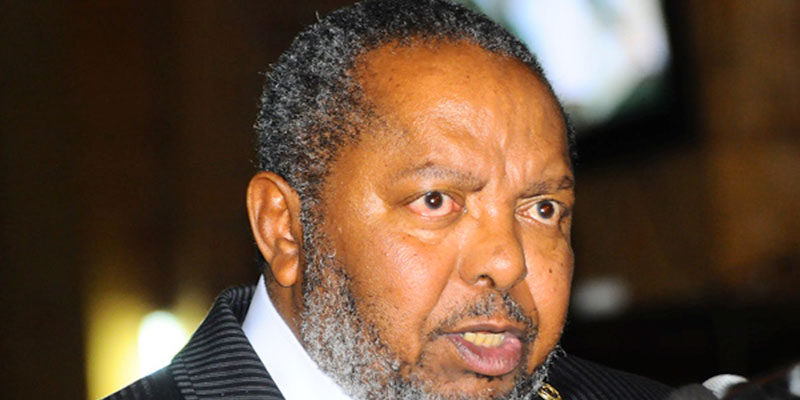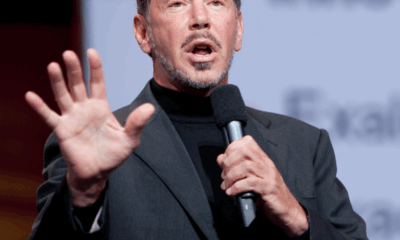Business
Crane Bank; Experts React to Mutebile’s ‘Guilty’ Plea
In his first major interview to the media since the dramatic collapse of Crane Bank, Bank of Uganda Governor Emmanuel Tumusiime Mutebile, who is charged with supervising all commercial banks in the country, has admitted to weaknesses in the supervision department of the Bank of Uganda.
“I would say sorry but I shall keep my position which is that I accept responsibility but I am not criminally culpable in as much as I am sorry for what happened,” Mutebile told Daily Monitor in an interview.
Mutebile instead pushed the blame to his junior – the Executive Director Supervision Justine Bagyenda.
Referring to a recent IMF report that pointed to weaknesses by the Bank of Uganda, Mutebile said: “They should have said, if the supervisors of the commercial banks were more vigilant. Who was doing the work of supervision? Okay, it was Bank of Uganda staff but not the entire BoU. BoU has an Executive Director in charge of Supervision,”Mutebile said, trying to distance himself from the mess.
Mutebile’s decision to come out amidst an ongoing legal process has been described as a sign of mounting pressure.
Ramathan Ggoobi, an economic policy analyst and lecturer at Makerere University Business School (MUBS) says: “Understandably the BOU governor is under pressure. Historically Mutebile only speaks to media when he is under pressure particularly from his friends from multilateral agencies, but also from the Ugandan public.
“I think he has begun to think that at this rate the BOU might also be subjected to a forensic audit.”
But beyond the apparent sense of pressure as demonstrated from the interview, experts argue that the Central Bank’s independence as well as its mandate to effectively regulate the financial system, are greatly deficient.
Mutebile told Monitor that contrary to previous reports that Crane Bank had other shareholders other than Sudhir Ruparelia, a forensic audit carried out last year discovered rather ‘late’ that the bank was 100 percent owned by Sudhir.
Ggoobi argues: “One implication is that the BOU is not fully in charge of the regulatory role of banks. It has limited capacity to detect fraud or even outright flouting of the law.
“Secondly, BOU might need to carry out a forensic audit in all banks. This is because ordinary audits seem unreliable to assess the health of banks and by extension that of the financial system.”
Mutebile says the central bank ordered a forensic audit of Crane Bank after the later experienced rapid loss of capital.
Mutebile’s shocking admission that the mess in Crane Bank went undetected for over 15 years, comes in the wake of growing criticism from the public that Bank of Uganda failed a major duty of protecting upholding the integrity of the financial sector.
But Mutebile defers criticism of this major lapse to the fact that findings by ordinary auditors never revealed the rot.
Asked why BoU’s well-staffed supervision department failed to arrest the problem, Mutebile replied that: “It was hidden very well. Sudhir had been audited every year but the auditors failed to see this criminality. It was only discovered after a forensic audit.”
Last week, Budadiri East MP Nandala Mafabi moved a motion in Parliament urging colleagues to hold the leadership of Bank of Uganda as incompetent and criminally negligent.
“The systematic failure by the Bank of Uganda to fulfil its core statutory mandate is an indicator of incompetence and potential complicity on the part of BoU,” he said.
How could the collapse of Crane Bank have happened overnight when over five years, the Bank of Uganda was reporting it as the best performing Bank? Someone must be held responsible for the mess,” he added.
The plenary, which was chaired by Deputy Speaker Jacob Olanyah saved Mutebile the embarrassment when the Speaker deferred the motion to the committee on statutory authorities.
But Ggoobi argues that BoU’s independence has further been compromised by the Crane Bank scandal.
The independence of the BOU is now questionable. One cannot rule out political interference when the Governor has to first request the President before he carts out a legal action. This is not the first time by the way. It also happened in 2011 when he revealed how he had been coerced to deplete the country’s reserves to purchase fighter jets,” said Ggoobi.
But Prof. Julius Kiiza, an economist from Makerere University appeared less surprised that Central Bank found itself entangled in this mess.
Prof. Kiiza said: “In theory, the central bank is independent, but in practice, it serves the interests of the government.”
Prof. Kiiza argues however that the extent to which BoU was used to serve the elites in government, has only come out because of their disagreements with Sudhir.
Despite impressive figures as one of the most profitable banks in Uganda including by the Reputable Banker Magazine by UK-based Financial Times Publication, Crane Bank fell from grace to grass last year when the Central Bank declared it was under-capitalised.
After giving Crane Banks’s shareholders a grace period of months to re-capitalise Bank of Uganda, on October 20, 2016, took over the management of Crane bank and declared it insolvent.
Comments



















